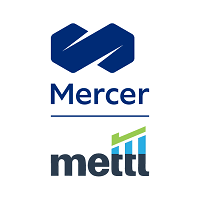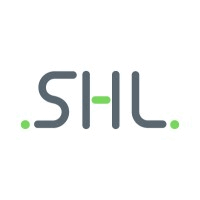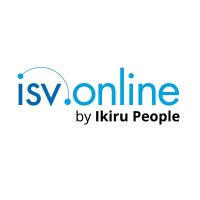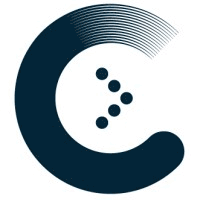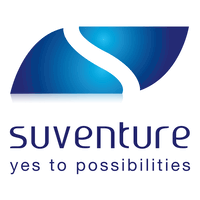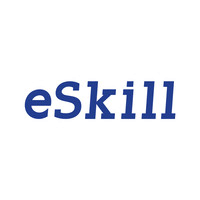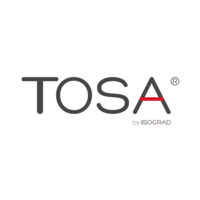Yes, most skill assessment software may be used on a variety of devices and platforms, including PCs, tablets, and smartphones. This provides flexibility and ease for both administrators and test-takers. Before making a purchase, be sure the program is compatible with the devices and operating systems you want to use. Furthermore, certain software may require internet access for specific functions to function.
List of 20 Best Skill Assessment Software
the Mercer Mettl Integrated Coding Assessment Platform and Mercer Mettl Hack - combination of digital solutions that streamline the hiring process, upskill coders, drive motivation, and cultivate a team of proficient coders. Leverage our advanced pla...Read More Mercer Mettl Coding Assessments
SHL Skills Assessments solution for measuring both hard and soft skills, cognitive abilities, and situational judgment. This all-encompassing tool provides valuable insights to enhance recruitment, development, and talent mobility efforts, resulting...Read More SHL Skills Assessments
Welcome to SolidProfessor is a learning platform for engineers using software such as SOLIDWORKS, AutoCAD, and Inventor. With a comprehensive library of over 15,000 video tutorials, our platform is perfect for professionals, educators, and students l...Read More SolidProfessor
LearningLabs is an innovative, digital platform that specializes in promoting mental wellness and inclusivity. Specifically designed for educational institutions and workplaces, it offers personalized e-learning resources that utilize neuroscience re...Read More LearningLabs
ISV.Online solution for simplifying and enhancing candidate assessment. Our highly customizable skills tests allow you to identify top-notch talent by evaluating their skills and personality traits. Say goodbye to traditional and time-consuming recru...Read More ISV.Online
Qualified is a AI platform that transforms your website into sales engine. With advanced features like AI chatbots, real-time messaging, and automatic meeting scheduling, it delivers personalized interactions and productive lead generation. Its effor...Read More Qualified
Aspiring Minds is atalent assessment software utilizing advanced AI technology to provide precise insights for companies to make valuable hiring, development, and retention decisions. With an aim to cultivate a capable, diverse, and motivated workfor...Read More Aspiring Minds
Coderbyte is a versatile platform that assists businesses in evaluating technical skills efficiently. Our platform offers an array of coding challenges and interviews to accurately assess candidates. With the capability to accommodate unlimited candi...Read More Coderbyte
Modern Hire is a platform that simplifies the recruitment process for companies. Our cutting-edge technology incorporates video interviews, AI-powered assessments, virtual job simulations, and conversational AI to seamlessly engage and evaluate candi...Read More Modern Hire
Talent Titan solution for optimizing your talent acquisition process. Our advanced assessment tool and training software effortlessly streamline the hiring process with features such as gamified assessments, AI-based screening, automated interview sc...Read More Talent Titan
Codejudge Assessments is a assessment tool that accurately evaluates developers abilities in a practical environment. With customizable tests tailored to different technical roles, our platform simplifies recruitment and helps companies hire top-qual...Read More Codejudge Assessments
iMocha is an innovative skills intelligence and assessment platform that enables talent teams to make well-informed decisions during the hiring process. With a vast library of over 2500 skills assessment tests, iMocha empowers organizations to effect...Read More iMocha
Codeaid is an innovative software platform that offers comprehensive evaluations of software engineers abilities through hands-on projects. Our advanced scoring system and longer test duration allow you to confidently select top talent who will excel...Read More Codeaid
Shortlisted, an efficient recruiting software that simplifies the hiring process and links job seekers with suitable job opportunities. Our platform utilizes advanced screening methods to thoroughly assess applicant qualifications, including practica...Read More Shortlisted
TalentGuard is a HR software that enables you to effortlessly track and manage your employees performance. From goal-setting to collecting instant feedback and offering performance-based rewards, TalentGuard keeps you in control of their engagement a...Read More TalentGuard
EasyTalentsolution for streamlining talent acquisition procedures. With cutting-edge functionalities and resources, including skill evaluations, psychometric tests, and virtual interviews, EasyTalent provides a swift and cost-effective approach to id...Read More EasyTalent
WebMentor LMS is a learning management system designed to enhance your training processes, enhance employee skills, and boost your organizations overall productivity. Its advanced course management, insightful analytics, and personalized interfaces t...Read More WebMentor LMS
Eskill is a online exam assessment tool, featuring a vast variety of 600 standardized tests and 5,000 topics to select from. With the flexibility to personalize test sheets, Eskill provides a personalized approach to test development. This robust sof...Read More eSkill
Codility is a leading online assessment tool that allows users to assess candidates coding abilities in real-time. Renowned companies such as Amazon, Citi, Intel, PayPal, and Barclays rely on Codility for efficient and accurate candidate evaluations...Read More Codility
TOSA Digital is a software that transforms the way digital skills are evaluated. With personalized learning paths and comprehensive performance analysis, TOSA Digital empowers users to enhance their proficiency in various digital tools and technologi...Read More TOSA Digital
Learn More About Skill Assessment Software
- What Is Skill Assessment Software?
- What Are The Recent Trends In Skill Assessment Software?
- Benefits Of Using Skill Assessment Software
- Important Factors To Consider While Purchasing Skill Assessment Software?
- What Are The Key Features To Look For In Skill Assessment Software?
- Why Do Businesses Need Skill Assessment Software?
- How Much Time Is Required To Implement Skill Assessment Software?
- What Is The Level Of Customization Available In Skill Assessment Software?
- Which Industries Can Benefit The Most From Skill Assessment Software?
- Conclusion
What Is Skill Assessment Software?
Skill assessment software is a strong tool for evaluating and measuring an individual's abilities and competences. It provides enterprises and organizations with a comprehensive solution for assessing employee abilities, tracking progress, and making educated decisions about employee development and performance management. This software assesses an individual's knowledge, abilities, and conduct through a variety of ways, including quizzes, tests, and simulations.
It includes a wide range of skill sets, from coding and software ability to communication and time management. One of the primary advantages of skill evaluation software is its ability to generate objective and dependable data that is free of biases or subjectivity. It provides precise information on an individual's strengths and shortcomings, allowing employers to discover areas for improvement and design training programs accordingly.
Furthermore, as the modern workforce becomes more diverse, skill evaluation software aids in spotting potential skill gaps and fostering a more inclusive and equitable workplace. Another benefit of utilizing skill evaluation software is the opportunity to save time and resources. Manual assessment techniques are time-consuming and generally inefficient.
Organizations can use the software's automated features to streamline their review procedures and focus on more vital duties. When shopping for skill assessment software, buyers should seek for features like personalized assessments, extensive reporting and analytics, and easy interaction with other HR systems. It is also critical to select software that has a user-friendly interface and excellent customer support.
Overall, skill evaluation software is a worthwhile investment for any company or organization that wants to encourage employee growth and development, increase productivity, and make data-driven decisions. With its comprehensive and unbiased approach, it is an essential tool for modern people management.
What Are The Recent Trends In Skill Assessment Software?
Skill assessment software has progressed dramatically in recent years, keeping up with the ever-changing demands of the labor market. As businesses attempt to discover the greatest individuals in a highly competitive environment, the necessity of appropriately measuring talents has grown. In response, skill evaluation software has seen some noticeable trends that should be considered before making a purchase.
One of the most important trends in talent evaluation software is the move towards more individualized and customizable tests. This enables businesses to personalize tests to specific job responsibilities, skill sets, and even company culture in order to gain a better understanding of the candidate's fit. This strategy also reduces the time and resources required to conduct several assessments, making the hiring process more efficient.
Another trend is the implementation of AI and machine learning algorithms in skill assessment software. These technologies not only provide a more accurate and impartial assessment of a candidate's abilities, but they also aid in discovering patterns and trends that may be used in future recruiting decisions. Furthermore, AI-powered software can evaluate enormous amounts of data, minimizing the manual effort required for reviewing and marking exams.
In recent years, there has been an increase in remote employment and virtual hiring processes, and skill evaluation software has responded accordingly. Many applications products provide remote proctoring, video interviews, and online proctored tests, making it easier for employers to assess candidates' skills from anywhere in the globe. Gamification is another concept that has gained popularity in talent evaluation software.
These examinations use gaming features to deliver a more interesting and dynamic experience for candidates, resulting in more accurate and reliable outcomes. Finally, integration with HR and recruiting software is a growing trend in skill evaluation software. This enables employers to effortlessly integrate assessment results into their current hiring and onboarding processes, making the hiring process smoother and more productive.
Benefits Of Using Skill Assessment Software
Skill evaluation software is a crucial tool for modern firms that want to efficiently analyze their employees' abilities. This program automates the process of evaluating and analyzing an individual's talents, providing valuable data to help HR departments make informed decisions.
Here are some major advantages of using skill evaluation software:
1. Accurate And Objective Evaluation: Skill assessment software eliminates the chance of human error and prejudice in the evaluation process. It assesses talents using standardized tests and criteria, which ensures fairness and impartiality.
2. Time And Cost-Effective: Traditional skill assessments, such as in-person testing or interviews, can be time-consuming and costly. In contrast, skill assessment software automates the process and may analyze numerous candidates at the same time, saving the firm both time and money.
3. Comprehensive Reporting: Skill assessment software creates detailed reports that provide a summary of an individual's performance in each skill area, as well as a comparative analysis to industry standards or other applicants. These reports can help identify strengths and weaknesses and offer vital insights for employee development.
4. Customizable Assessments: When it comes to skill assessment, each organization has its own set of criteria. Skill assessment software provides customizable assessments, allowing organizations to tailor exams to their specific needs and analyze the abilities that are most important to their industry or job roles.
5. Streamlined Hiring Process: By precisely analyzing a candidate's skills, skill assessment software can help firms make better hiring decisions. It allows companies to identify and pick high-performing individuals who have the appropriate skills and qualifications for the position, lowering the likelihood of a disastrous hire.
6. Staff Development: Skill assessment software can help with both hiring and staff development. Identifying an employee's strengths and weaknesses allows firms to provide tailored training to improve their abilities and performance, resulting in a more competent and productive workforce.
Important Factors To Consider While Purchasing Skill Assessment Software?
When it comes to selecting talent evaluation software, there are a few key elements to consider before making a purchase. These elements can influence the software's efficacy and applicability for your individual requirements.
1. Purpose And Goals: Before investing in any software, it is critical to clearly establish the purpose and goals for using it. This will assist you in determining which features and functionalities are required, as well as which assessment methodologies are best suited to your firm.
2. User-Friendly Interface: A user-friendly interface is essential for ensuring that the software is simple to navigate and utilize. This is especially significant if you have a big number of non-technical users. Look for software that has a simple and straightforward interface, clear instructions, and little training required.
3. Customization Options: Each organization has its own set of criteria and objectives. As a result, it is critical to choose software that provides customization options, such as the ability to design individual exams, track progress, and provide reports tailored to your specific requirements.
4. Valid And Reliable Assessments: The accuracy and reliability of assessments are critical in identifying and developing competencies. Make sure the software you purchase has a thorough research and validation procedure in place, as well as compliance with industry standards. Look for software that supports many assessment kinds, such as self-assessments, peer evaluations, and 360-degree feedback.
5. Integration With Other Systems: Skill assessment software is frequently used in conjunction with other HR and talent management solutions. To avoid compatibility concerns, verify that the software you chose integrates properly with your existing systems.
6. Data Security: With the increase in cyber threats, data security has become a significant responsibility for businesses. When choosing skill evaluation software, seek for security features such as data encryption, secure servers, and regular backups to safeguard your data's safety and confidentiality.
7. Cost And ROI: Before making a purchase, examine the software's cost as well as its potential return on investment (ROI). Look for software that provides a good combination of cost and functionality, as well as measurable benefits in terms of skill and performance improvement.
What Are The Key Features To Look For In Skill Assessment Software?
When selecting Skill Assessment Software for your firm, it is critical to search for vital characteristics that will not only suit your immediate demands but also support your long-term objectives.
Here are some key things to look for in Skill Assessment Software:
1. Customization And Personalization: Each organization has its own set of abilities and requirements. Look for software that allows you to tweak and personalize exams to meet your specific requirements. This ensures more accurate results and a better fit for your organization.
2. Comprehensive Evaluation Tools: The program should provide a variety of evaluation tools for evaluating various capabilities, such as cognitive ability, technical skills, personality qualities, and so on. The more thorough the examination, the greater insight you will have of your employees' abilities.
3. Valid And Reliable Measures: The software should utilize proven and reliable measures to assess talents. This will ensure that the assessment results are both accurate and effective. Look for software created in partnership with professionals in the field of skill assessment.
4. User-Friendly Interface: The software's interface should be simple to use and understand. This will save time and make it easier for staff to complete the exams.
5. Automated Scoring And Results: The software should include an automated scoring mechanism that eliminates human mistake and provides rapid results. This will save time and money while also allowing for a more efficient processing of evaluation data.
6. Data Analysis And Reporting: Look for software with advanced data analysis and reporting capabilities. This enables you to track progress, evaluate strengths and shortcomings, and make informed decisions based on assessment results.
7. Integration With Learning Management Systems: If your firm employs a Learning Management System (LMS), select skill assessment software that works flawlessly with it. This will improve training efficiency and give a more comprehensive approach to skill development.
8. Mobile Compatibility: With the growing use of mobile devices, it is critical to select software that is compatible with them. This will allow employees to complete assessments at any time and from any location, making them more convenient and accessible.
9. Security And Data Privacy: The software should have strong security mechanisms in place to secure sensitive employee information. It should also follow data privacy rules and regulations to protect the confidentiality of the assessment results.
10. Customer Assistance: Finally, search for software that provides trustworthy customer assistance. This will assure fast assistance in the event of any technical issues and continuing support for your organization's skill assessment requirements.
Why Do Businesses Need Skill Assessment Software?
Skill evaluation software has become a crucial tool for all firms, regardless of size or industry. In today's fast-paced and competitive industry, attracting and maintaining top people is critical to any company's success. Here's when skill evaluation software comes into play. First and foremost, organizations want skill evaluation software to effectively evaluate the abilities and knowledge of their employees or future recruits.
Traditional techniques of assessing skills, such as interviews and resumes, are subjective and potentially prejudiced. Skill evaluation software offers a consistent and unbiased method for evaluating an individual's skills, lowering the risk of employing the wrong applicant. Furthermore, skill evaluation software assists firms in identifying talent gaps in their staff. It allows businesses to assess their employees' existing skills and identify opportunities for improvement.
Businesses that recognize their employees' strengths and limitations can give focused training and development programs to improve their abilities, thereby increasing the organization's overall productivity and performance. Furthermore, with the growing popularity of remote work and virtual teams, skill evaluation software provides a simple and effective approach to evaluate the skills of remote employees.
It eliminates the need for physical tests and enables organizations to evaluate the talents of candidates from all over the world, saving time and resources. Furthermore, skill evaluation software provides vital insights into an employee's potential for advancement and development within the organization. Employers can utilize this data to make strategic decisions, such as identifying the best candidates for promotions or developing tailored career development programs.
Finally, in today's ever-changing business scene, it is critical for businesses to keep up with the latest skills and technologies. Skill assessment software delivers a thorough and up-to-date evaluation of an individual's abilities, ensuring that firms have the proper people to adapt and succeed in a quickly changing environment.
How Much Time Is Required To Implement Skill Assessment Software?
The time required to install talent assessment software varies based on a number of factors, including the size of the business, the complexity of the software, and the level of customization needed. In general, the implementation procedure can last from a few weeks to several months. When determining the time required for implementation, it is critical to understand the various steps involved.
Typically, the first step is to install the program, which can take anywhere from a few hours to several days. This is followed by the setup and configuration phase, which entails configuring the program to meet the organization's specific requirements. This can take anything from a few days to a few weeks, depending on how much modification is required. Next, the program must be integrated with existing systems and databases, which can be time-consuming.
The time required for integration varies according to the complexity of the systems and databases involved. It is vital to note that this step is required for the software to perform properly and produce correct results. Once the program has been installed and configured, it is critical to train the team members who will use it. This can take anywhere from a few days to several weeks, depending on the software's complexity and the level of training necessary.
It is critical to provide comprehensive training to guarantee that team members can fully utilize the software's features and capabilities. Finally, the program can be implemented throughout the firm, although it may take some time for people to become acclimated to using it. This varies according to the organization's size and the quality of assistance supplied by the software vendor.
What Is The Level Of Customization Available In Skill Assessment Software?
When choosing a skill evaluation software, one of the most important factors to consider is the level of customization provided. This refers to the software's ability to be customized to meet the unique demands and specifications of your firm. Some talent evaluation software may have limited modification choices, but others offer a large range of customizable tools.
These can include changes to assessment content, scoring criteria, and report forms. The level of customisation offered can have a significant impact on the efficiency and accuracy of the skill assessment process. The option to adjust the content and criteria allows you to ensure that the assessment appropriately represents the skills and abilities required for your specific jobs and positions.
Furthermore, customisation provides a more personalized experience for test takers, which can boost engagement and motivation. It also enables more personalized feedback and development plans based on individual assessment outcomes. When assessing skill evaluation software, learn about the level of customization offered and whether it meets your organization's requirements. Additionally, examine the ease of use and flexibility of the customization choices, since these can have a significant impact on the software's use and acceptance within your organization.
Which Industries Can Benefit The Most From Skill Assessment Software?
In today's work market, skill assessment software has grown in use and value. With increased competition and need for highly qualified people, businesses are turning to this technology to detect and evaluate the skills of current employees as well as new prospects. But which industries would gain the most from skill assessment software? Let's have a closer look.
1. Human Resources: Companies' HR departments can profit substantially from the use of skill evaluation software. They frequently face the difficult task of analyzing hundreds of resumes and determining the best candidates for a specific role. HR executives can use talent assessment tools to expedite their hiring process and ensure that only the most qualified candidates move forward.
2. Information Technology: In today's quickly evolving technological landscape, IT organizations must have a staff of highly qualified and knowledgeable people. These firms can use talent assessment software to discover skill gaps in their teams and give customized training and development programs to close such gaps. It can also be used to analyze potential applicants' technical abilities and determine their appropriateness for specific positions.
3. Education: Skill evaluation software can help educational institutions, including universities and private organizations. This software can save time and deliver accurate results in areas like as admissions and placement tests, as well as evaluating students' academic and extracurricular skills. It can also help identify areas for development and create tailored learning programs for kids.
4. Sales And Marketing: The success of a company's sales and marketing operations is greatly dependent on the abilities of its personnel. Skill assessment software allows these departments to determine their employees' strengths and shortcomings and provide focused training and coaching to improve performance. It can also help discover top-performing salespeople throughout the recruitment process, resulting in a stronger and more effective team.
5. Healthcare: Healthcare practitioners' abilities and knowledge can have a substantial impact on patient outcomes. Healthcare businesses can use skill evaluation software to evaluate their staff' clinical abilities, knowledge, and bedside manner. It can also help identify areas for development and provide training so that patients receive better care.
Conclusion
To summarize, skill assessment software can be a beneficial tool for any firm trying to expedite its hiring process and find high-performing applicants. Businesses that use this software can save time and dollars while boosting the quality of their recruits. When selecting a skill assessment program, purchasers should consider the types of assessments available, the integration capabilities with existing hiring systems, and the customer support supplied.
It is also critical to understand the company's special demands and goals in order to purchase software that best meets their unique requirements. Buyers should also assess the software's usability and efficacy, as well as any other features or services offered by the vendor. It is also advisable to study reviews and solicit feedback from other users to ensure that the software meets expectations and produces reliable results.
Finally, investing in a reputable and thorough skill evaluation program can tremendously benefit a company by allowing it to make more educated and data-driven hiring decisions. Buyers may assure a successful implementation and improve their hiring process by carefully analyzing all features of the software and selecting the one that best meets their demands.
Skill Assessment Software FAQ's
Can Skill Assessment Software Be Accessed Across Multiple Devices And Platforms?
Is Skill Assessment Software Future-Proof And Adaptable To Emerging Technologies Like AI, Blockchain Or IoT?
Skill evaluation software is always improving to keep up with advances in technology such as AI, blockchain, and IoT. These programs now use powerful algorithms and machine learning to produce precise and unbiased findings.
The combination of these technologies allows the software to discover and analyze a candidate's abilities, knowledge, and potential in a more efficient and exact manner. This makes skill evaluation software future-proof and adaptable to new technologies, ensuring its relevance and efficacy in a rapidly evolving employment market.
Is There A Free Trial Offered To Assess Skill Assessment Software Before Committing?
Yes, most skill evaluation software providers provide free trials to prospective clients. This enables people or organizations to try out the software and see whether it suits their requirements before making a commitment. These trials often last from a few days to a month and provide access to all features and support. It's an excellent technique to discover whether the product is a good fit for your firm.
Does Skill Assessment Software Offer Data Security Features And Meet Regulatory Compliance Standards?
Yes, most talent evaluation software includes data security safeguards and complies with regulatory norms. These features include secure data storage, encryption, and access controls to safeguard sensitive information. In addition, many software vendors conduct regular security audits and hold certifications such as ISO 27001 to ensure they fulfill regulatory compliance criteria. This helps to protect both the firm and the people doing the assessments.
Can Skill Assessment Software Integrate Seamlessly With Existing Tools And Platforms?
Yes, Skill Assessment Software can work easily with other tools and platforms including Learning Management Systems (LMS), Applicant Tracking Systems (ATS), and Human Resource Information Systems (HRIS). This allows firms to manage all of their employee data and training assessments in one location, saving time and effort. The software can also be tailored to match the company's identity and processes, resulting in a more seamless user experience.

